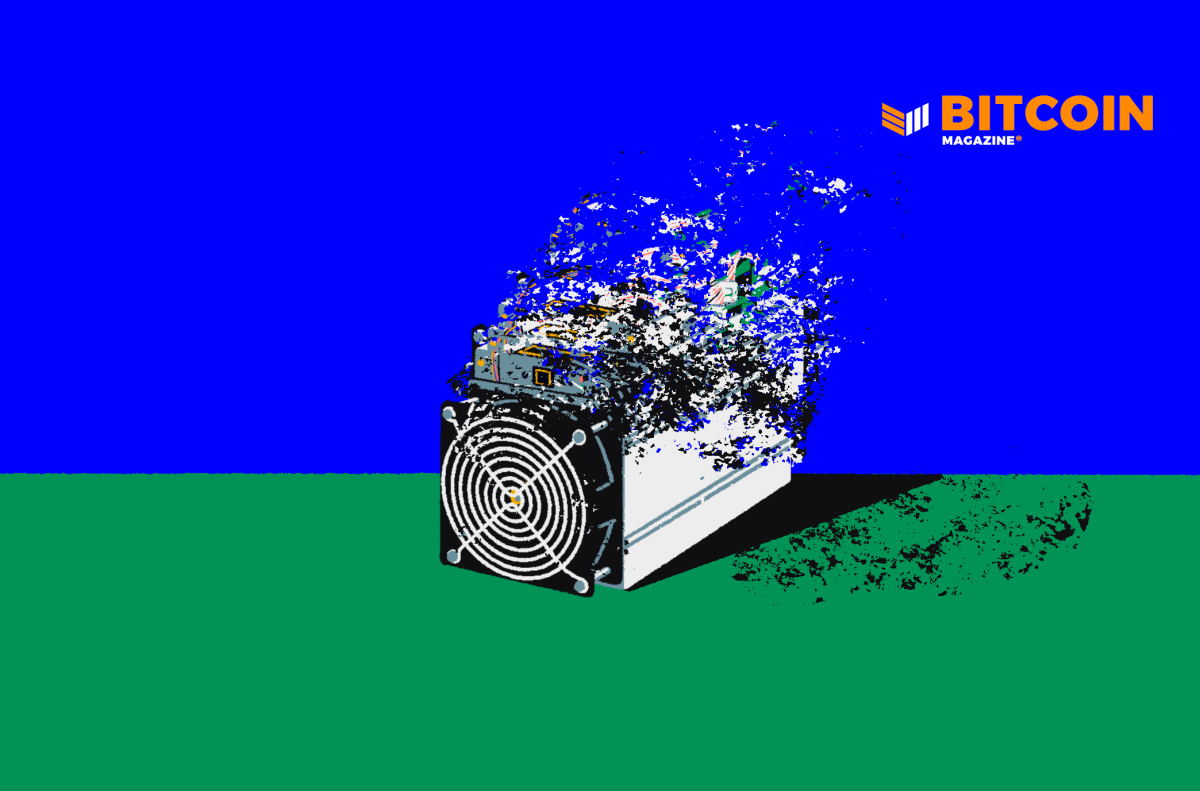There Are No Bitcoin Miners, There Are Validators – Bitcoin Magazine

This is an editorial by Doc Sharp, a Bitcoin product designer currently funded by Spiral to contribute to various Bitcoin FOSS projects.
The fact that almost every project except Bitcoin, the industry’s crown jewel, has managed to build an effective public relations campaign to market their decentralized only name (DINO) projects has been a digital asset for some time. It is never true for anyone who has been in the property field. This is not surprising as the tens of billions of dollars collected over the past few years had to go somewhere.
One of the areas where Bitcoin falls short in the public relations department, the focus of this article is on the framework of block verification methods colloquially known as Proof of Work (PoW) or mining.
First, how does mining work?
Simply put, Bitcoin miners use energy-powered PoW to find needles in haystacks. Once you find the needle, use it to create new blocks and add them to the Bitcoin blockchain. When this new block is added, miners are rewarded with newly created bitcoins. Currently, this is the most decentralized means of achieving network consensus and creating valid blocks. Click here for Bitcoin mining.
Bitcoin mining and framing effects
In a world where capital is governed by criteria such as environmental, social and governance (ESG) scores, green narratives in new technology adoption are becoming increasingly important.
Knowing this, the perceived high energy cost of bitcoin mining and the very term mining in relation to environmental damage created barriers to bitcoin adoption and led to the DINO project discrediting bitcoin and pumping the bag. The herring is used for picking.
However, relatively speaking, bitcoin mining uses very little energy and is mostly environmentally friendly. The reason people overlook these realities is due to a cognitive bias known as the framing effect.
the term mining It carries a lot of negative connotations (see image below). There are other digital assets available that promise similar solutions to Bitcoin with a much smaller environmental footprint, so naive users often choose them over Bitcoin for their framing effect.
This is what people think of when they hear mining.
I won’t go into details in this article, but the “greener” solution Proof of Stake (PoS) is not a viable alternative and will inevitably lead to centralization. Given the complexities underpinning both PoW and PoS, it’s no surprise that people make choices for superficial reasons, such as their naive view of energy.
The psychological theory underpinning the framing effect is known as prospect theory.
Most people don’t realize that the benefits of PoW (more energy use, but decentralized) outweigh the losses of PoS (less energy use, but centralized). Although it is easy to understand losses from a purely environmental perspective.
This is partly due to the fact that the majority of people today see climate change as a serious social issue, and partly because “Bitcoin uses more electricity than many countries. How is that possible?” is exacerbated by sensational articles such as Cycle regularly. This is how the framing effect appears as only the context of one of the frames (the environment frame) is visible to the individual.
So how do we overcome the framing effect and make people realize that Bitcoin mining is not boiling the ocean and is actually an efficient use of energy? Taking a note from the DINO handbook, You can take advantage of stories with less negative connotations to your advantage.
How can this be applied to Bitcoin mining? Good …
Call Bitcoin Miners, Bitcoin Validators
With the Ethereum 2.0 integration, Ethereum moved from mining with PoW to using validators with PoS. Miners and miners as we know them will no longer exist on Ethereum, with claims cited to reduce energy usage by up to 99.5%.
These energy savings come at the expense of decentralization, so it’s a red herring. Decentralization is a fundamental first principle of cryptocurrency, without which it is useless. 100% of the energy usage of a centralized public cryptocurrency, even if small, is wasted due to a network failure.Bitcoiners know this and that’s why they do I never have Change your code.
Now let’s go back to the framing effect. The term validator has a much more positive connotation due to DINO’s marketing efforts and does not contain as many terms as mining. Fewer negative connotations means people perceive the term more positively. Avoiding the framing effect by using more media-friendly terms like validators, the gains of PoW (which uses more energy but is decentralized) outweigh the losses of PoS (which uses less energy but are more centralized). ) is easier for people to understand.
DINO has done all the work here by shifting the narrative to PoS > PoW. All we can do is use this effort to our advantage. Because they have used the Bitcoin brand over and over again to justify the Rube Goldberg Machine.
Bitcoin validators, called Bitcoin miners, can therefore prevent the framing effect from occurring and shift the narrative to PoS < PoW. With both Bitcoin and Ethereum using the same terminology, there is a discussion of contrasting nuances between the two, making it easier for people to understand. It's also a technically accurate and explicit term, as producing valid blocks is what miners (validators) do.
Below are mining-related terms that need to be changed.
Bitcoin Mining Pool = Bitcoin Validator Pool
Bitcoin Miner = Bitcoin Validator
Bitcoin mining = Bitcoin verification
Overview
In summary, restructuring PoW mining into PoW validation prevents the framing effect from occurring, a cognitive bias that makes choices based on whether they are presented with a positive or negative connotation. will benefit Bitcoin in the long run.
Mining = negative connotations.
Validating = positive connotation (thanks Ethereum).
This is a guest post by Doc Sharp. Opinions expressed are entirely his own and do not necessarily reflect those of his BTC Inc or Bitcoin Magazine.
There Are No Bitcoin Miners, There Are Validators – Bitcoin Magazine
Source link There Are No Bitcoin Miners, There Are Validators – Bitcoin Magazine


